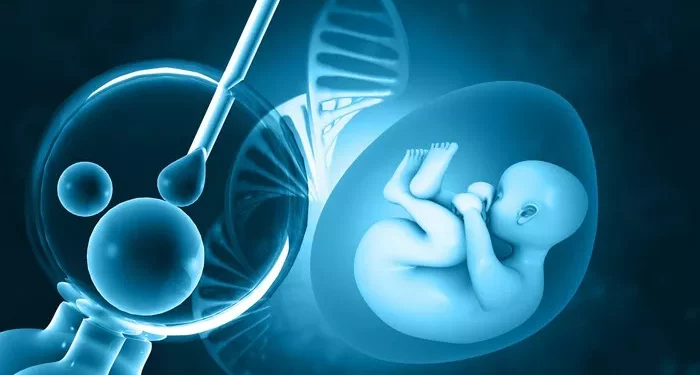Preparing your uterus for a frozen embryo transfer (FET) is a crucial step in the in vitro fertilization (IVF) process. The goal is to create an optimal environment in the uterine lining to support embryo implantation and improve the chances of a successful pregnancy. This article provides a detailed guide on how to prepare your uterus for a frozen embryo transfer, including medical, lifestyle, and emotional considerations.
Introduction to Frozen Embryo Transfer
1. What is Frozen Embryo Transfer?
Frozen embryo transfer (FET) is a procedure where previously frozen embryos are thawed and transferred into the uterus. This step is part of the IVF process and allows for the embryos to be implanted in a prepared uterine lining.
2. Importance of Uterine Preparation
Successful embryo implantation depends significantly on the condition of the uterine lining. Proper preparation of the uterus increases the likelihood that the embryo will successfully implant and develop, leading to a healthy pregnancy.
Steps to Prepare Your Uterus for FET
1. Medical Evaluation and Monitoring
Pre-Transfer Assessment
Before the FET procedure, your fertility specialist will conduct a thorough assessment. This may include:
Ultrasound Examination: An ultrasound is used to evaluate the thickness and health of the uterine lining. A lining thickness of around 7-14 mm is generally considered optimal for implantation.
Hormonal Tests: Blood tests may be performed to check hormone levels, including estrogen and progesterone, which are crucial for preparing the uterine lining.
Medication Protocol
To prepare the uterine lining, you may be prescribed hormone medications. These typically include:
Estrogen: Administered either orally, via patches, or through injections, estrogen helps thicken the uterine lining. The dosage and form will be tailored to your specific needs.
Progesterone: Progesterone is crucial for maintaining the uterine lining and supporting embryo implantation. It may be given as injections, vaginal suppositories, or oral pills.
2. Lifestyle Adjustments
Nutritional Considerations
Maintaining a healthy diet supports overall reproductive health. Key nutritional tips include:
Balanced Diet: Include a variety of fruits, vegetables, lean proteins, and whole grains in your diet to support overall health.
Hydration: Drink plenty of water to stay hydrated, which helps in maintaining healthy bodily functions, including the reproductive system.
Limit Caffeine and Alcohol: Reduce or eliminate caffeine and alcohol intake, as excessive consumption can negatively affect reproductive health.
Physical Activity
Engage in moderate physical activity to support general health, but avoid excessive exercise. Regular, moderate exercise helps manage stress and maintain a healthy body weight, which is beneficial for reproductive health.
Stress Management
Managing stress is important for overall well-being and can positively influence fertility. Consider incorporating stress-reducing practices into your routine, such as:
Relaxation Techniques: Practices like yoga, meditation, and deep breathing can help reduce stress levels.
Support Systems: Seek support from friends, family, or a counselor if needed. Emotional well-being is a critical component of preparing for an FET.
3. Preparing for the Transfer Procedure
Timing of the Transfer
The timing of the frozen embryo transfer is carefully coordinated with your menstrual cycle and the preparation of your uterine lining. Your fertility specialist will schedule the transfer based on the optimal window for implantation.
Pre-Transfer Instructions
Follow any specific pre-transfer instructions provided by your fertility clinic. These may include:
Medication Adherence: Ensure you take all prescribed medications as directed, including estrogen and progesterone.
Avoiding Certain Activities: You may be advised to avoid certain activities or environmental factors that could impact the success of the transfer.
4. Post-Transfer Care
Immediate Aftercare
Following the embryo transfer, it is important to follow your clinic’s post-transfer instructions, which may include:
Rest: You may be advised to rest for a short period following the transfer. However, prolonged bed rest is generally not necessary.
Medications: Continue taking any prescribed medications, including progesterone, as directed by your fertility specialist.
Monitoring and Testing
After the transfer, you will undergo follow-up monitoring to assess the success of the procedure. This may involve:
Pregnancy Testing: A blood test will be conducted approximately 10-14 days after the transfer to check for pregnancy.
Ultrasound Examination: If pregnancy is confirmed, an ultrasound will be performed to assess the development of the embryo and the health of the pregnancy.
see also: How Does IVF Work If A man is Infertile: A Full Guide
5. Addressing Potential Issues
Common Challenges
During the preparation and transfer process, some common challenges may arise, such as:
Thin Uterine Lining: If the uterine lining is not thick enough, your fertility specialist may adjust your medication protocol to improve lining thickness.
Hormonal Imbalances: Hormonal imbalances can affect the preparation of the uterine lining. Your specialist will monitor and manage these imbalances to optimize the chances of successful implantation.
Seeking Professional Support
If you encounter difficulties or have concerns during the preparation process, consult with your fertility specialist. They can provide guidance, address any issues, and adjust your treatment plan as needed.
Conclusion
Preparing your uterus for a frozen embryo transfer involves a combination of medical, lifestyle, and emotional strategies. By following a tailored medication protocol, making healthy lifestyle adjustments, and adhering to pre- and post-transfer instructions, you can create an optimal environment for embryo implantation.
Successful preparation of the uterine lining enhances the chances of a successful pregnancy following a frozen embryo transfer. Collaborating closely with your fertility specialist and managing all aspects of the preparation process will support your journey towards a healthy pregnancy.
Related topics:



























